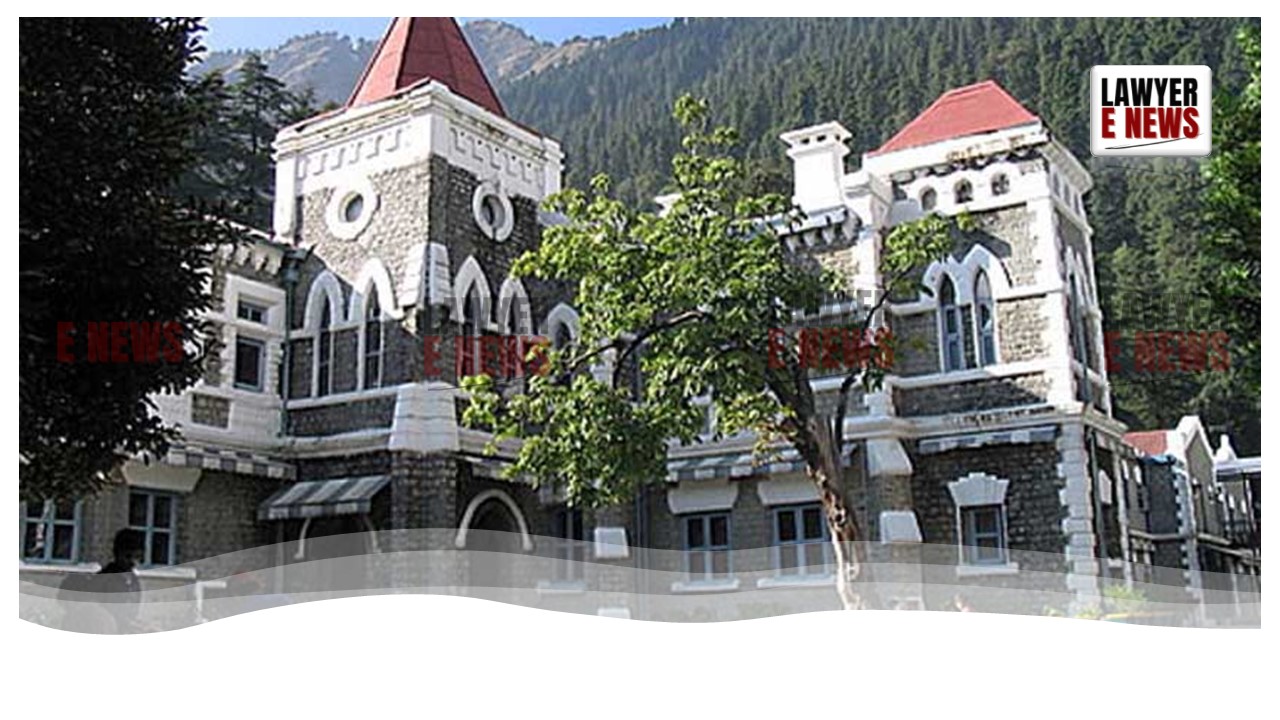-
by Admin
15 February 2026 5:01 PM



The High Court of Uttarakhand at Nainital has dismissed a writ petition challenging the order demanding the refund of compensation paid for land acquired under the National Highways Act, 1956. The court, presided over by Justice Manoj Kumar Tiwari, upheld the Competent Authority’s decision to recover the compensation due to unresolved title disputes and ongoing litigation regarding the partition of the ancestral property.
In WRIT PETITION (M/S) No. 2016 of 2022, petitioners Piyush Kumar and others contested a notice dated July 15, 2022, and an order dated August 4, 2022, issued by the Competent Authority Land Acquisition, Haridwar. These orders demanded the refund of compensation amounting to ₹4,96,58,425, paid for the land acquired under the National Highways Act, 1956. The petitioners claimed rightful ownership of the land based on sale deeds and affidavits from their predecessor, Narendra Singh. However, the land’s title was under dispute due to pending litigation involving other co-sharers and an interim order from the Supreme Court regarding a partition suit.
Justice Manoj Kumar Tiwari noted that the title to the land in question was not clear, as the sale deed executed by Narendra Singh was subject to challenge in a civil suit for cancellation. The court observed that the petitioners’ names were not recorded in the revenue records at the time of notification under Section 3D(1) of the National Highways Act, 1956, and that the land was still subject to a partition suit filed by their predecessor.
The court emphasized the role of the Competent Authority under Sections 3H(3) and 3H(4) of the National Highways Act, 1956, which requires determining the rightful claimants of compensation or referring the dispute to the civil court. Justice Tiwari remarked, “Since other co-sharers have title in the acquired land, it is incumbent upon the Competent Authority Land Acquisition to follow the provisions contained in Section 3H(3) or Section 3H(4) of The National Highways Act, 1956.”
The court acknowledged that the Competent Authority acted within its rights to correct the mistake of paying the entire compensation to the petitioners under the false impression that they were the sole owners. “By the impugned notice, Competent Authority Land Acquisition/Special Land Acquisition Officer has corrected the mistake. Thus, there is no scope for interference in the matter,” Justice Tiwari concluded.
The judgment extensively discussed the principles governing the apportionment of compensation under the National Highways Act, 1956, especially in cases involving multiple claimants. It reiterated the necessity of due process and accurate determination of entitled parties to avoid unjust enrichment and ensure fair distribution among rightful owners.
Justice Manoj Kumar Tiwari emphasized the need for equitable distribution, stating, “Other persons also have share in the acquired land, therefore, they are entitled to proportionate share in the amount released as compensation.”
The dismissal of the writ petition by the Uttarakhand High Court underscores the judiciary’s commitment to fair and just resolution of compensation disputes arising from land acquisitions. This decision reinforces the legal framework ensuring that compensation is duly apportioned among all rightful claimants, preventing any undue advantage or misappropriation. The Competent Authority’s directive to follow due process under the National Highways Act, 1956, sets a precedent for handling similar disputes in future land acquisitions.
Date of Decision: July 05, 2024
